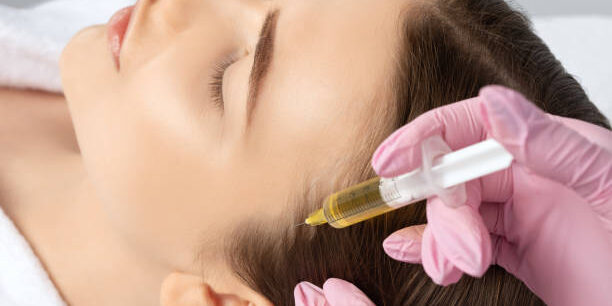Platelet-rich plasma (PRP) therapy is a versatile and effective treatment for various medical and aesthetic concerns. PRP has demonstrated its efficacy, whether it’s promoting hair growth, rejuvenating the skin, or aiding in tissue repair. However, a curious guideline often accompanies PRP treatments – the restrictions on caffeine intake post-procedure. As we navigate this exploration, we aim to unravel the intricate relationship between caffeine and PRP, shedding light on why this post-procedure restriction is advised for individuals seeking optimal results from their PRP journey.
Also read: Decoding Microneedling with PRP Pricing: What Influences the Cost?
Decoding the PRP Procedure:
Before we explore caffeine restriction, let’s have an overview of PRP treatment. PRP involves extracting and concentrating platelets from the patient’s blood, which is rich in growth factors and proteins and fosters tissue repair and regeneration. The prepared PRP injections are reintroduced into the targeted area, stimulating the body’s natural healing processes. In the context of hair restoration PRP hair treatment, this innovative technique is specifically tailored to nourish and revitalize hair roots, promoting sustainable and natural hair growth.
Also read: From Injection to Impact: Understanding PRP’s Time Frame for Hair Regrowth
Caffeine’s Impact on the Body:
Caffeine is a central nervous system stimulant in coffee, tea, and other beverages. It is known for its temporary energy-boosting effects. It perks people up by blocking adenosine, a neurotransmitter that makes people feel sleepy and relaxed. In addition to keeping people awake, caffeine also affects blood circulation and platelets.
Impact Of Caffeine On Blood Circulation:
Caffeine intake induces a rise in heart rate and blood flow. Blocking adenosine leads to the release of adrenaline and a temporary surge in blood pressure. While typically viewed as beneficial in specific situations, its interplay with platelet function prompts considerations within the context of PRP therapy.
Also read: How Permanent is PRP? Exploring the Lasting Impact of PRP
Platelet Function and the Caffeine Connection:
The effectiveness of PRP therapy depends upon the efficient function of platelets, which are essential for clotting and tissue repair. Consuming caffeine might disrupt platelet function and affect the expected results of PRP treatment. Therefore, it is advised to avoid caffeine after PRP to keep the concentrated platelets strong and effective.
Avoid Caffeine Post PRP Treatment For Enhanced Healing:
Many healthcare providers emphasize the importance of avoiding caffeine after the treatment to enhance healing and regeneration. Patients are encouraged to follow this precautionary measure to maximize the ultimate outcomes.
Healthcare experts recommend avoiding caffeine after PRP treatment to ensure the healing and regeneration process goes smoothly and allows the platelets to work effectively. If you’re looking for top-notch care and a personalized approach to your well-being, Hamilton Health and Wellness is the place to be. Their commitment to your health makes them stand out, ensuring you get the best results from your post-PRP journey. Trust Hamilton Health and Wellness for a healthier and happier you.
Also read: Demystifying PRP Treatment Coverage with Blue Cross Blue Shield





